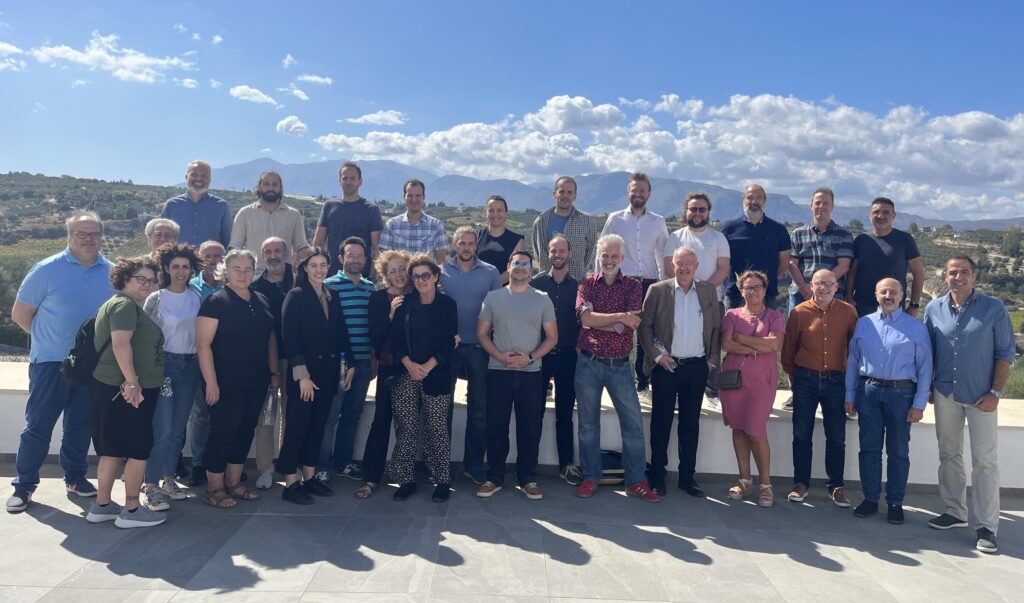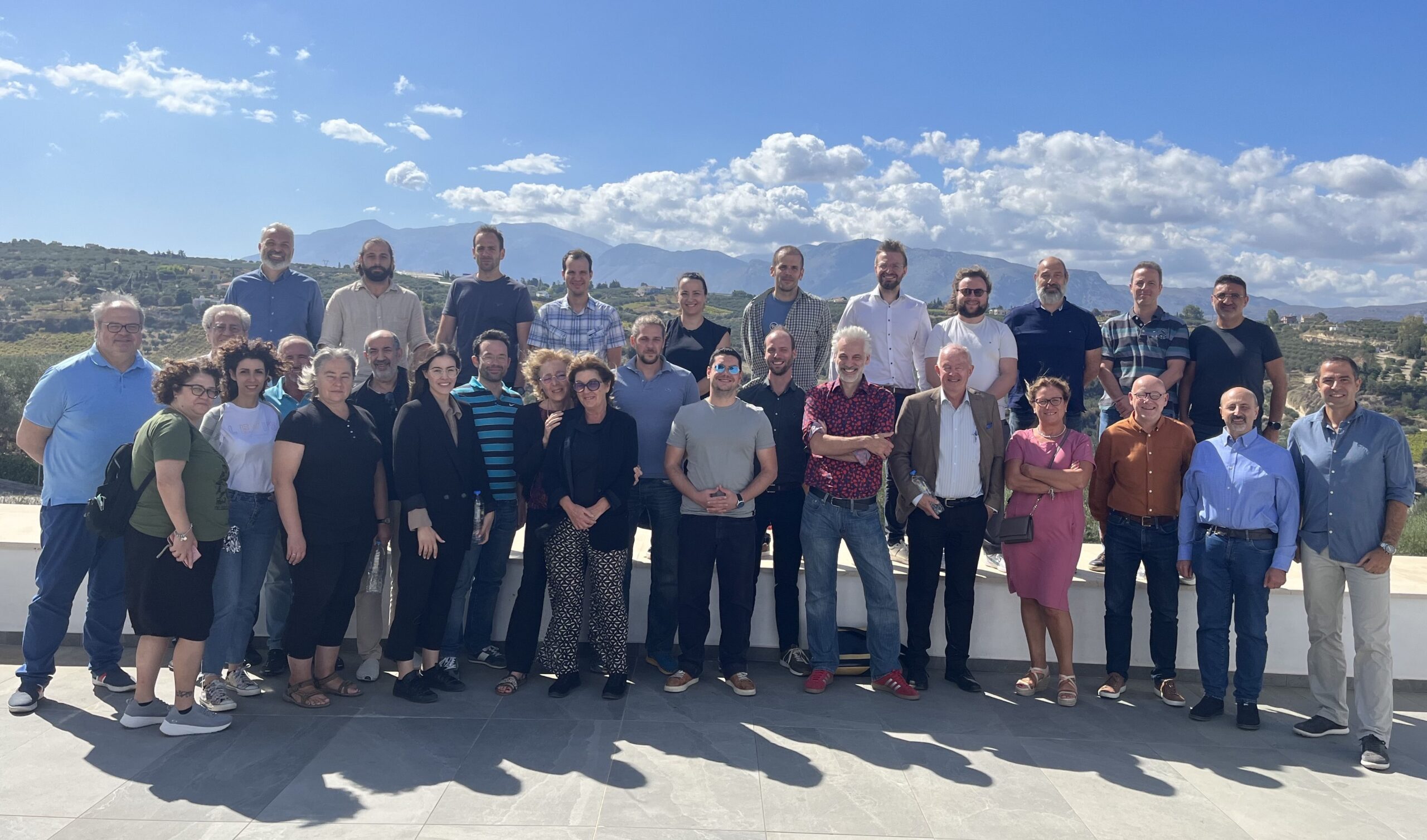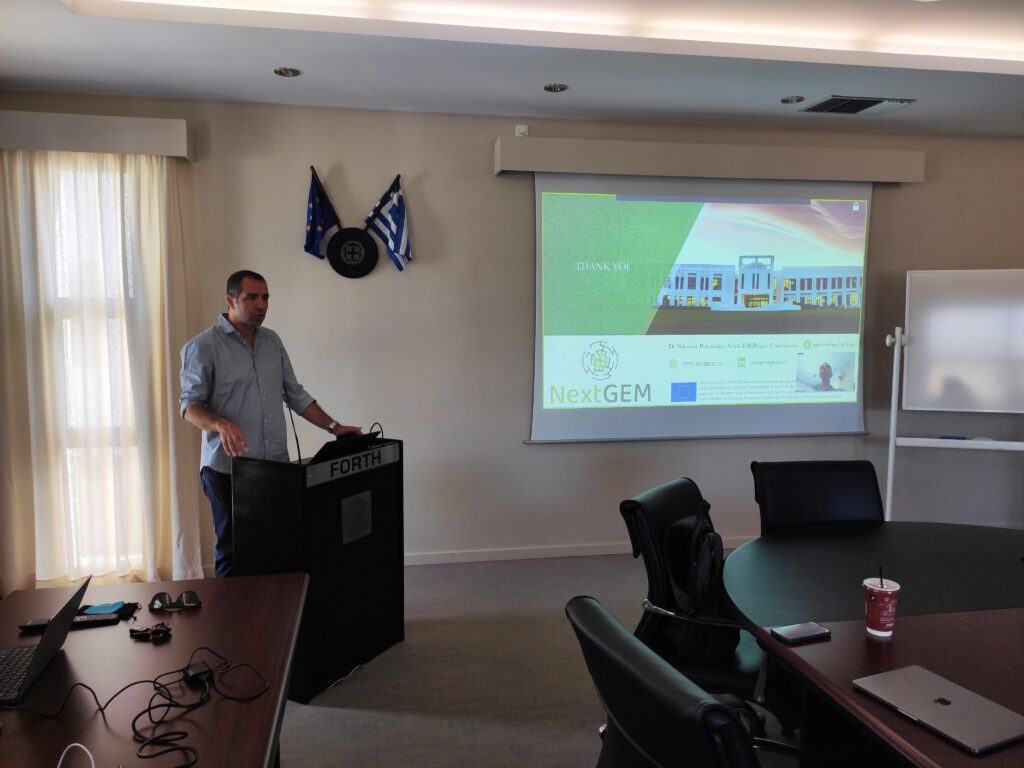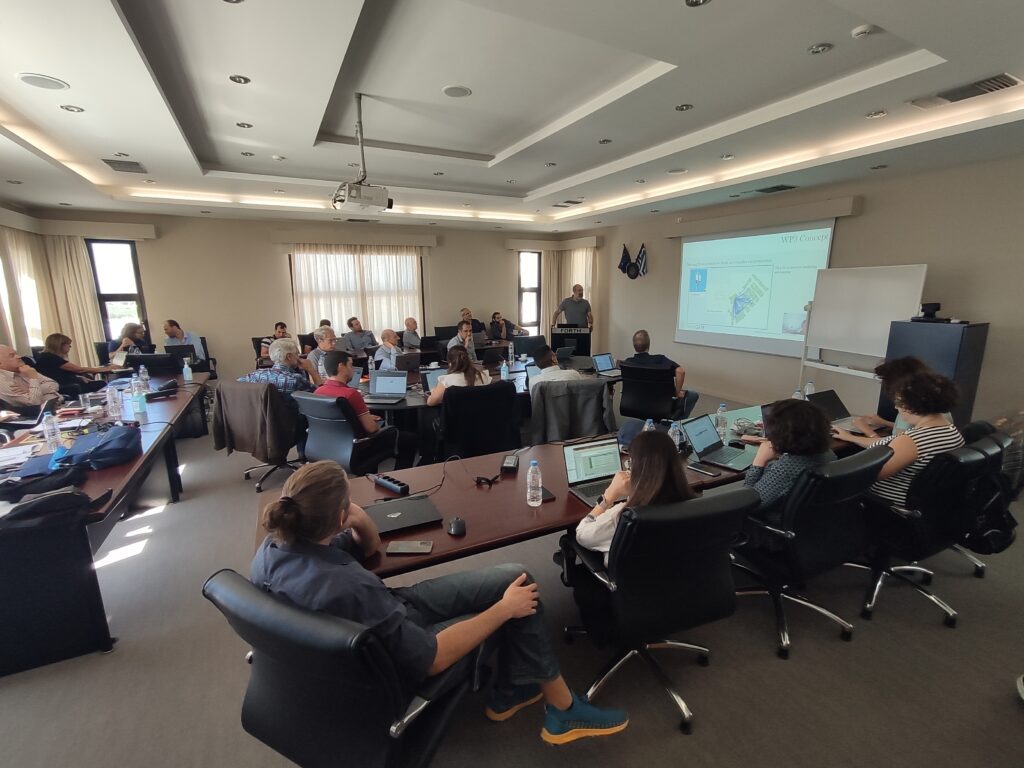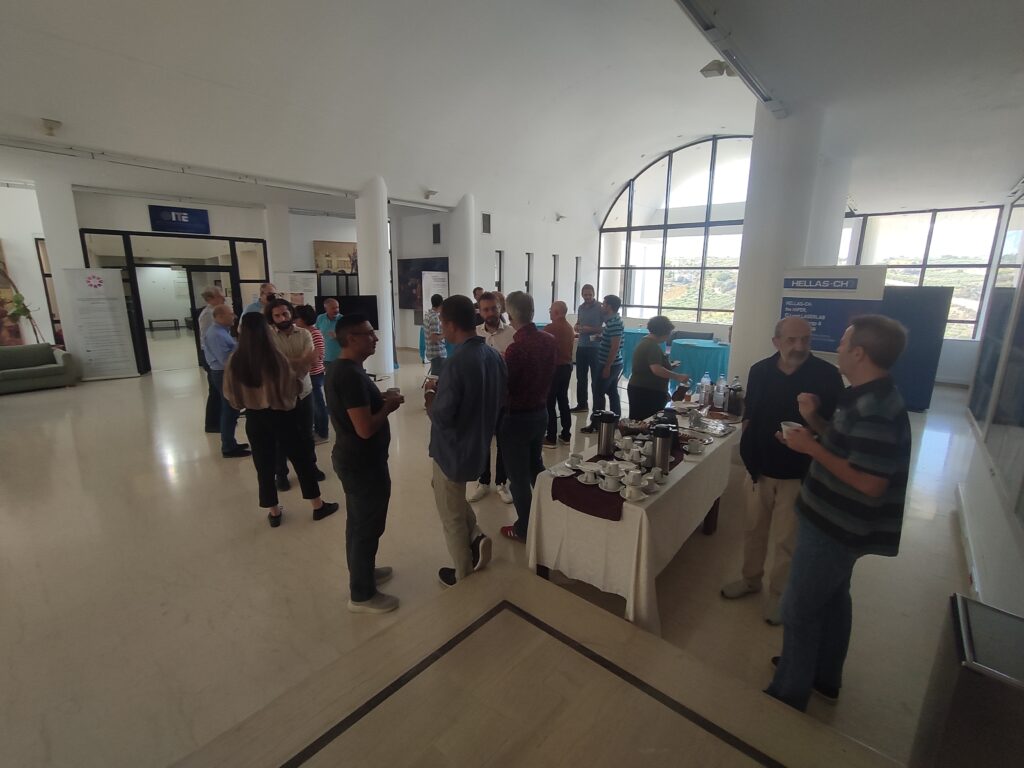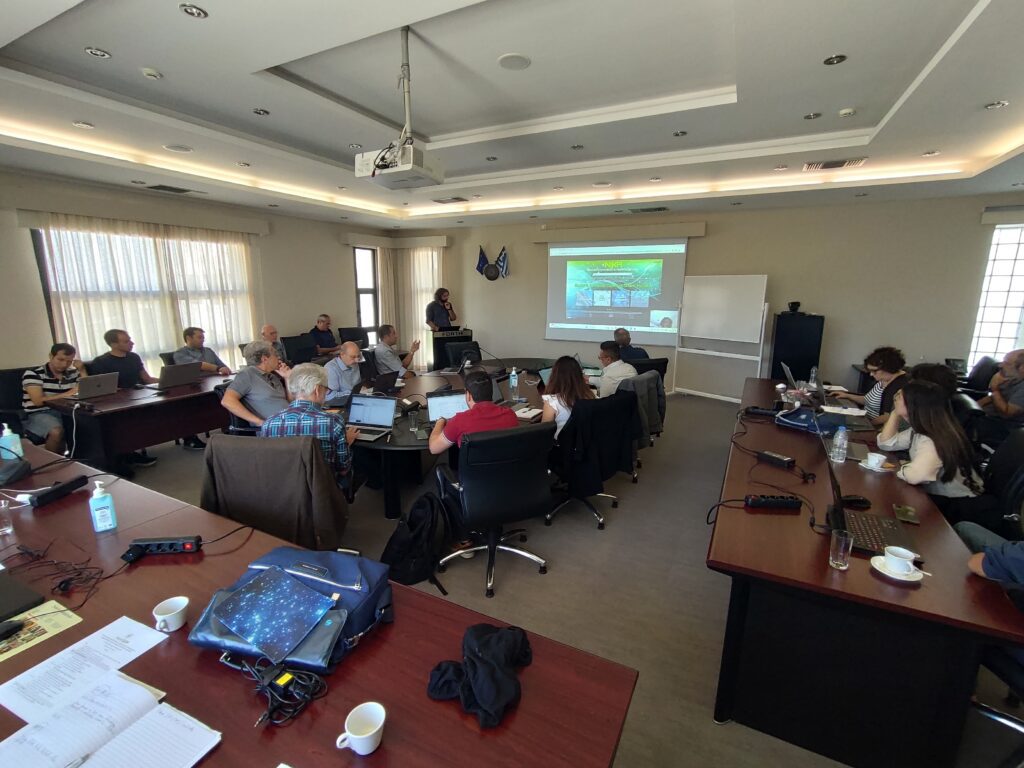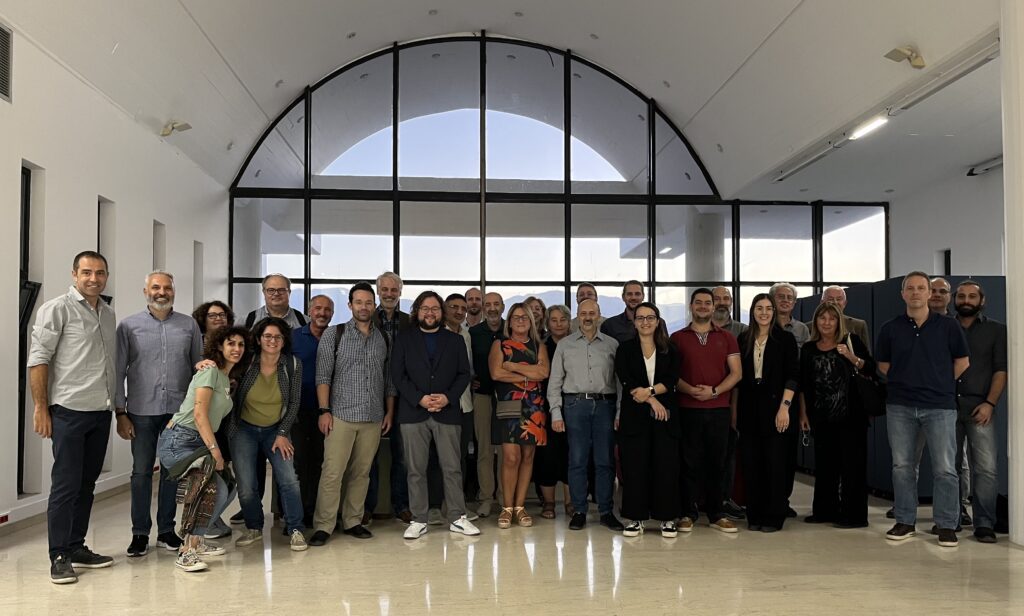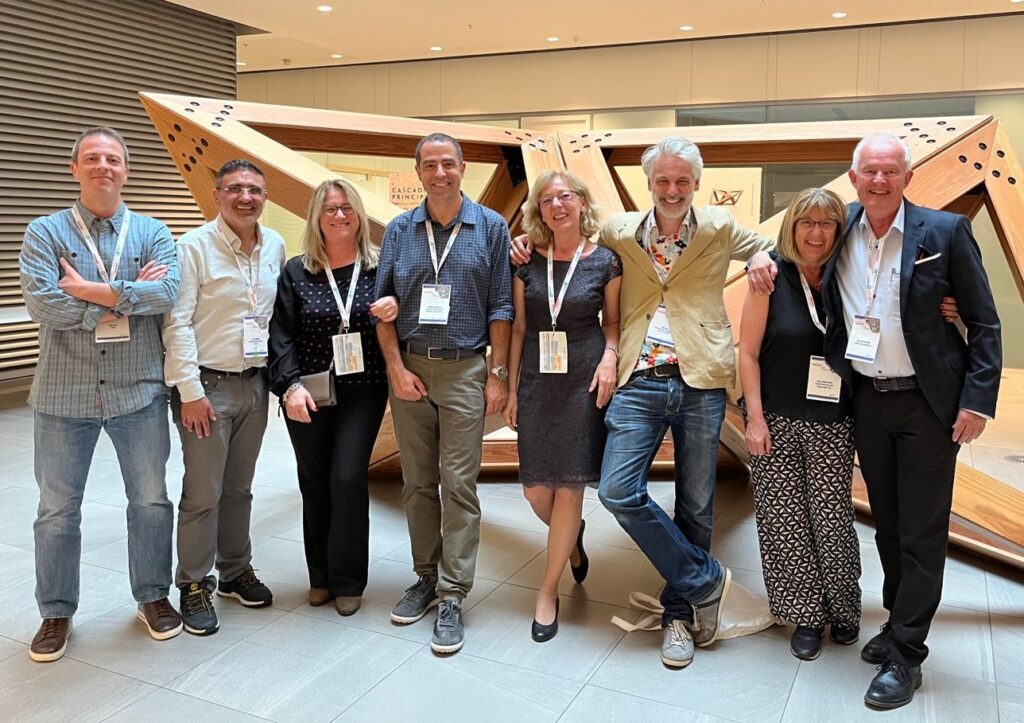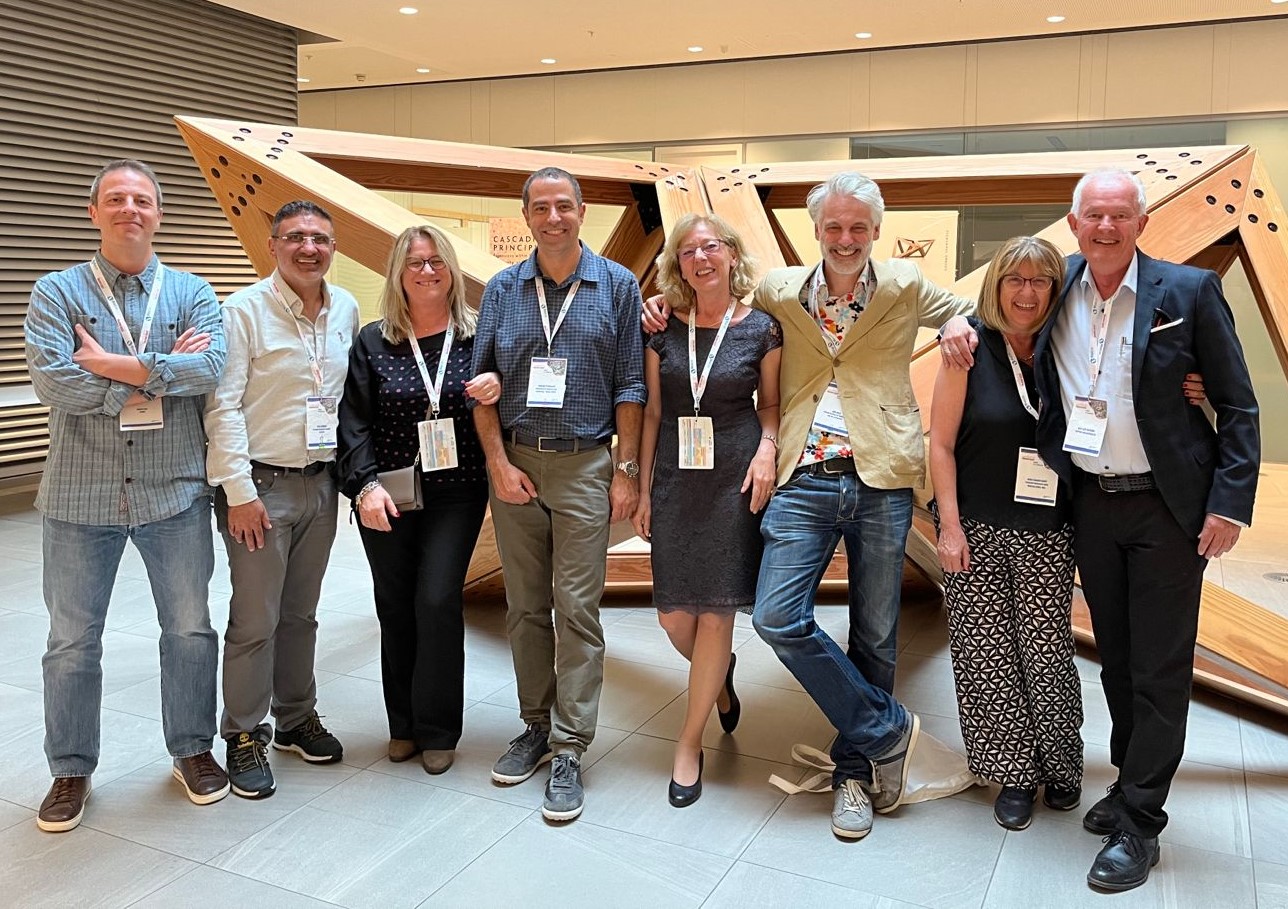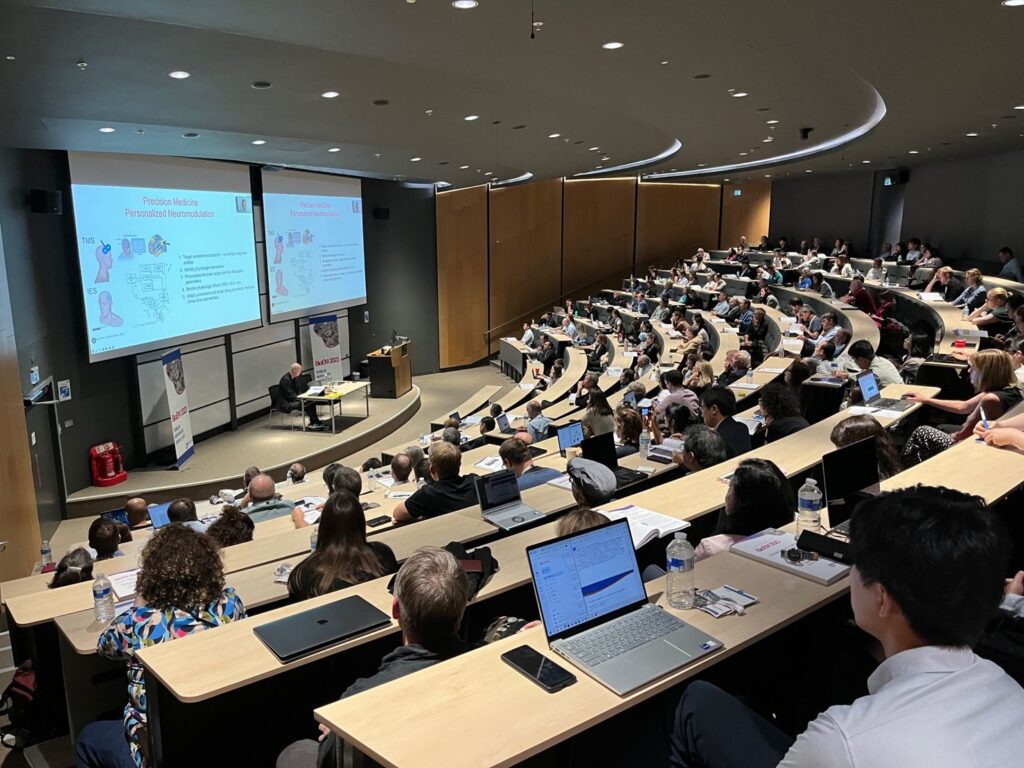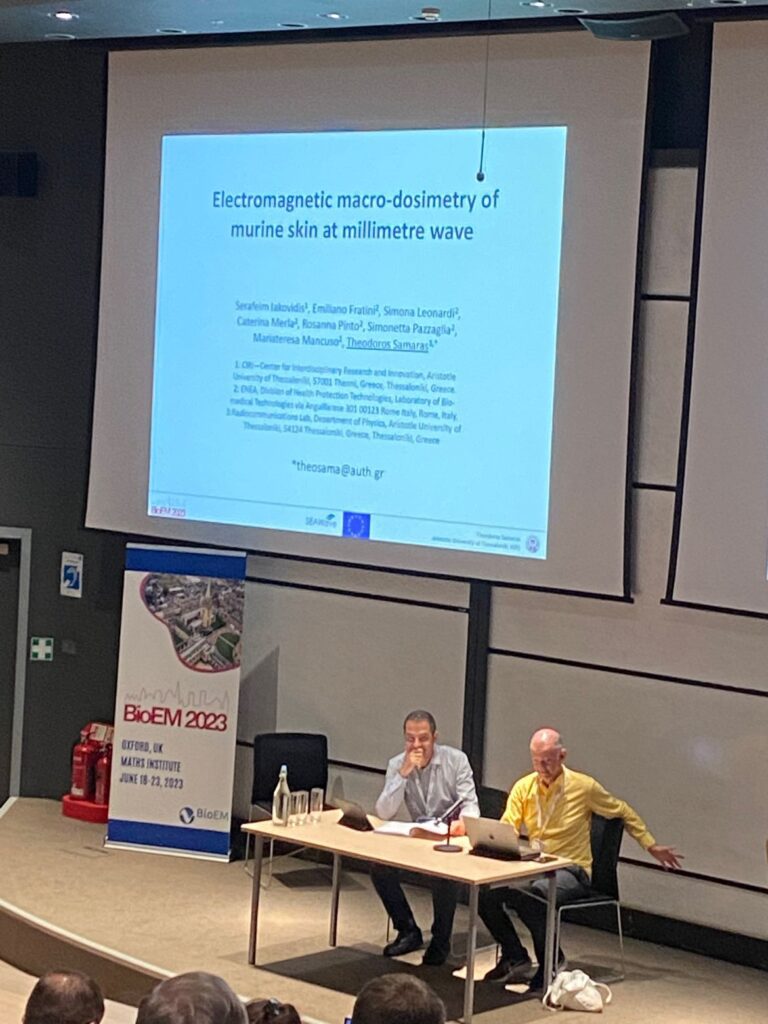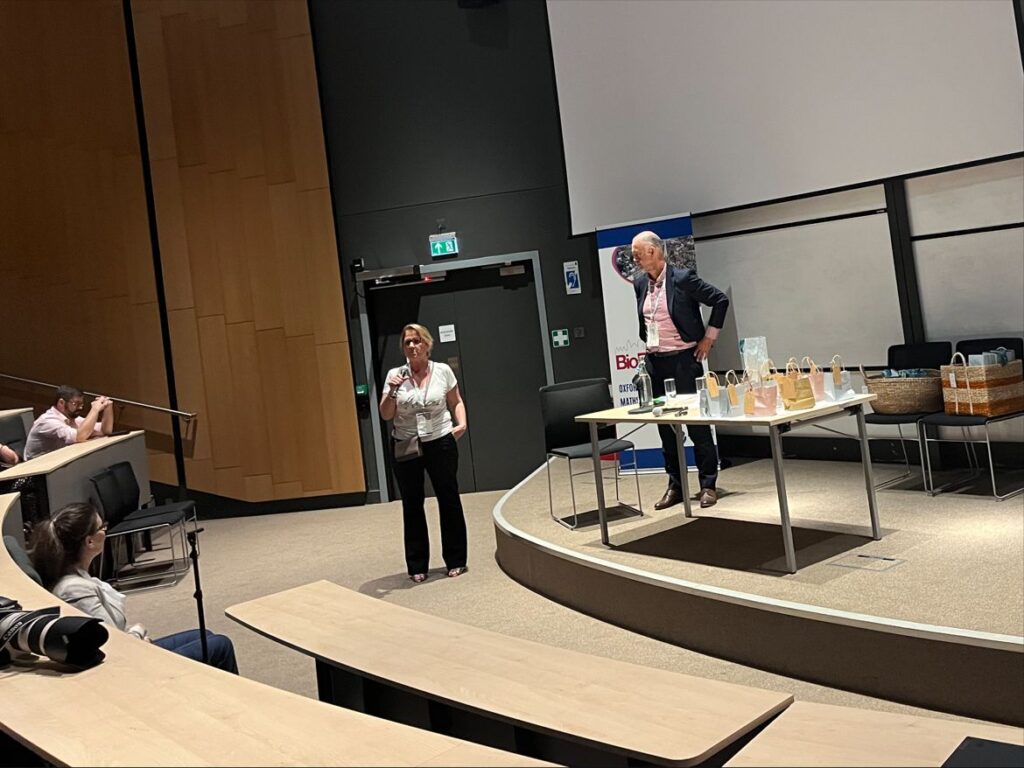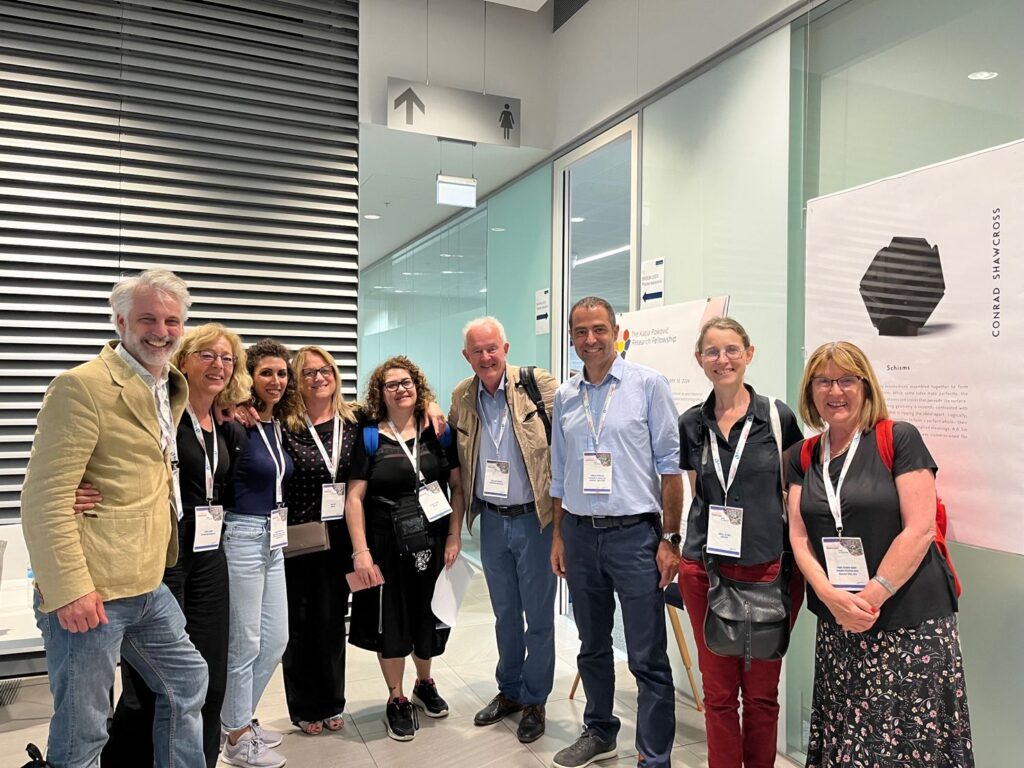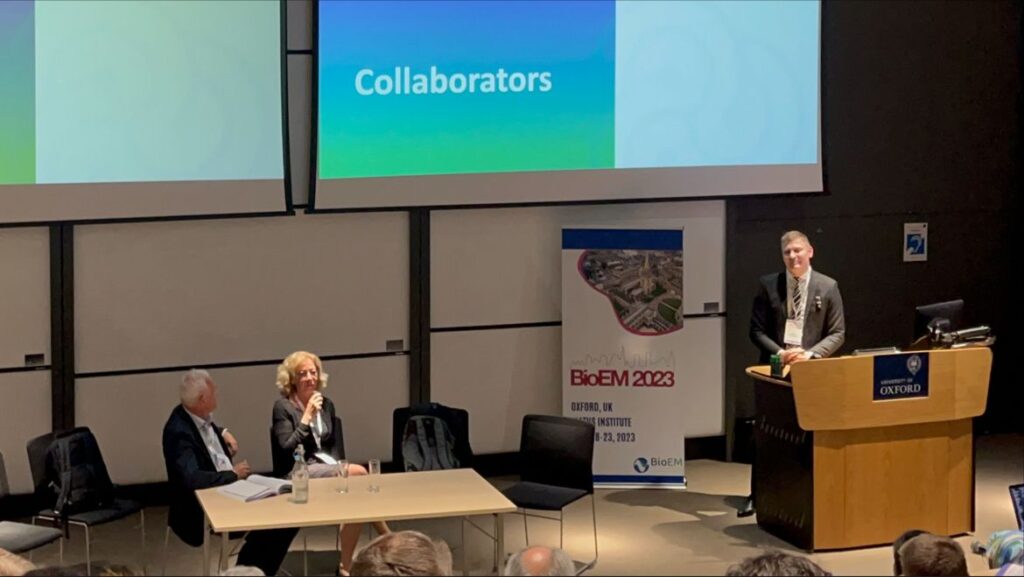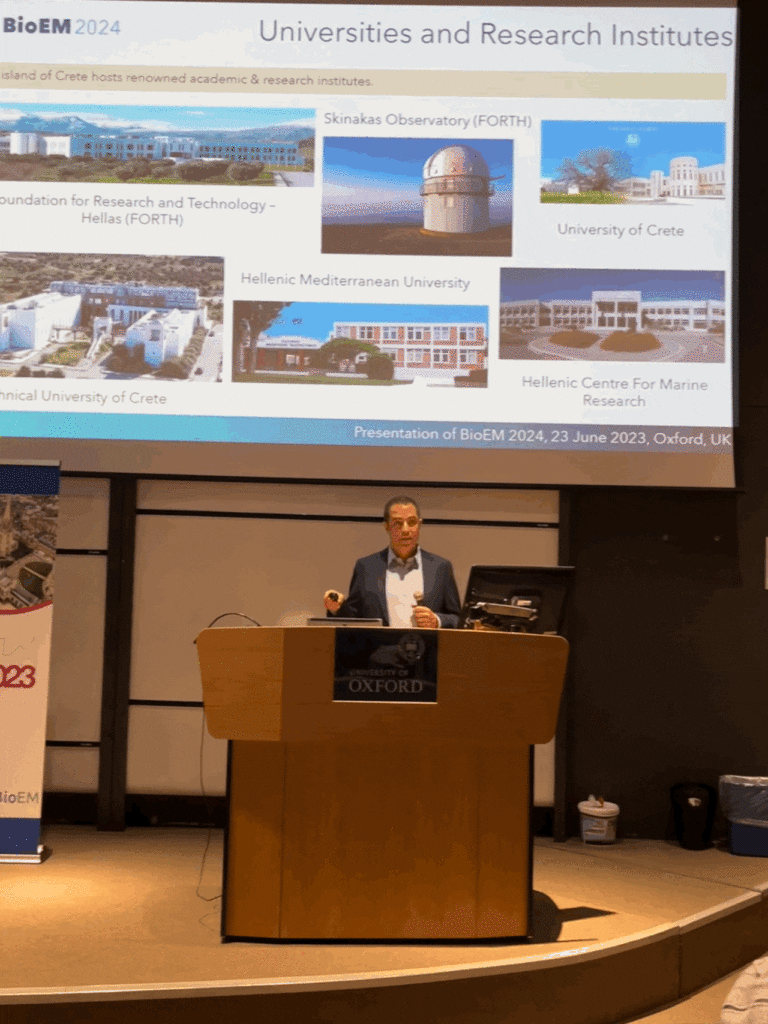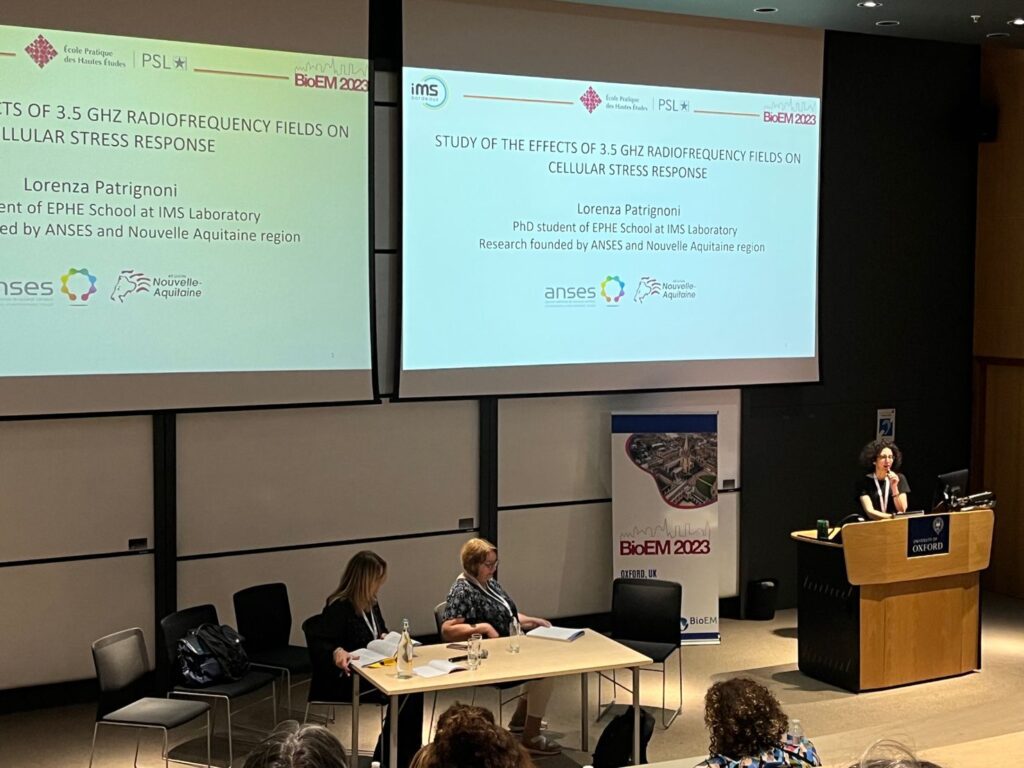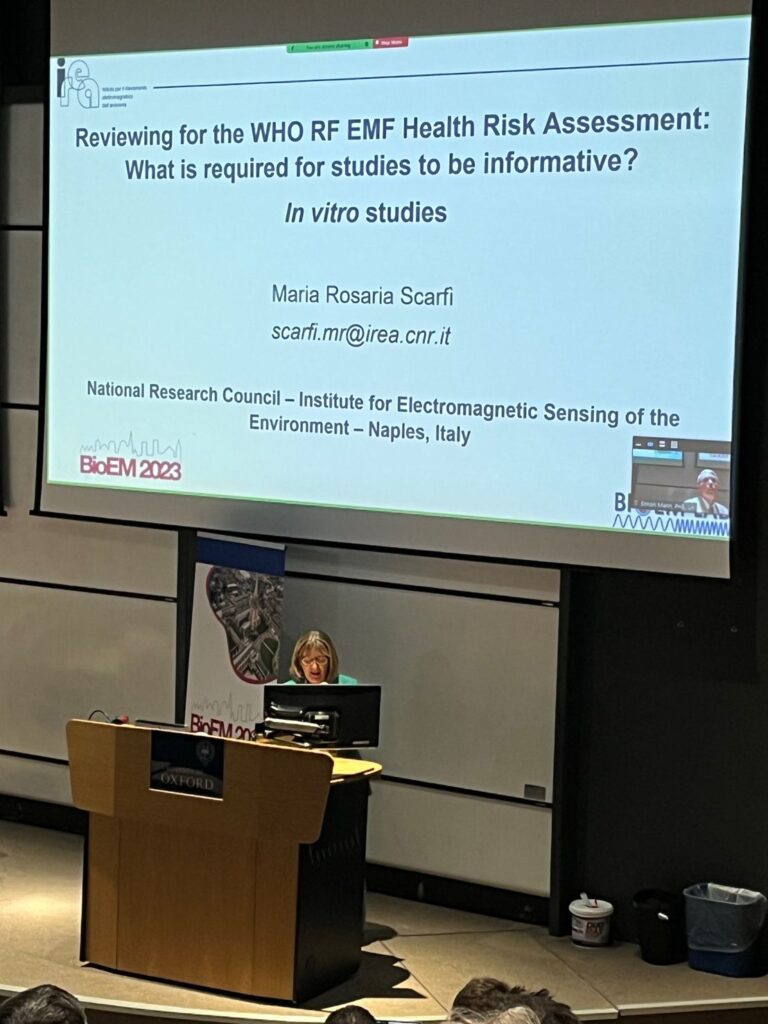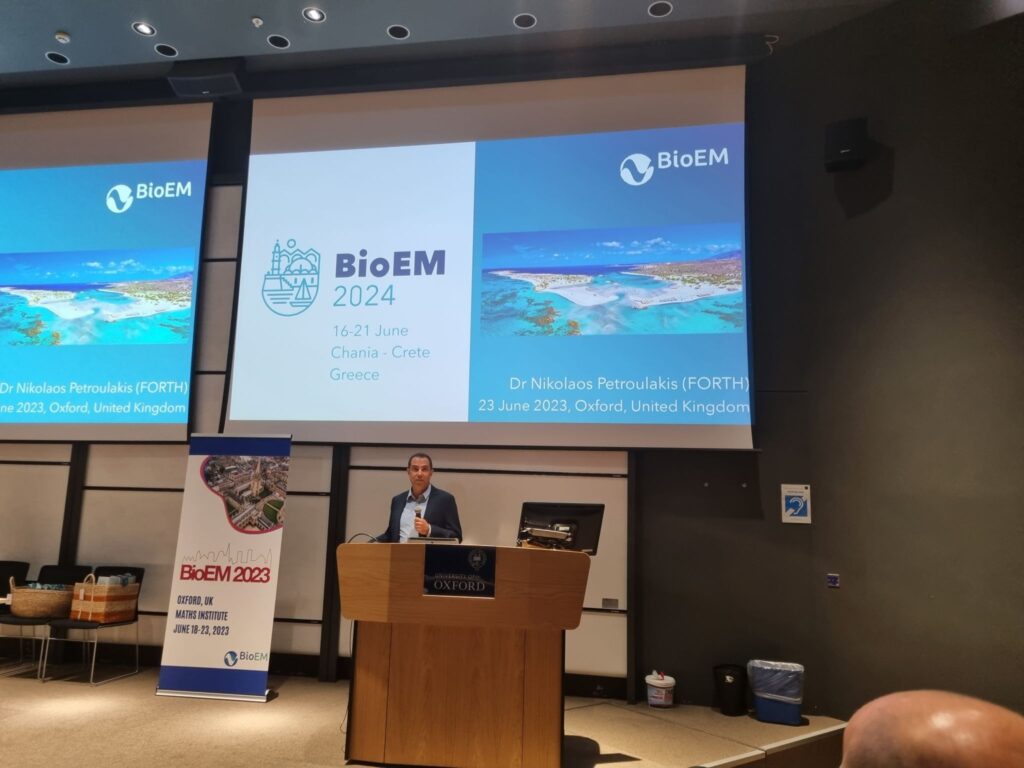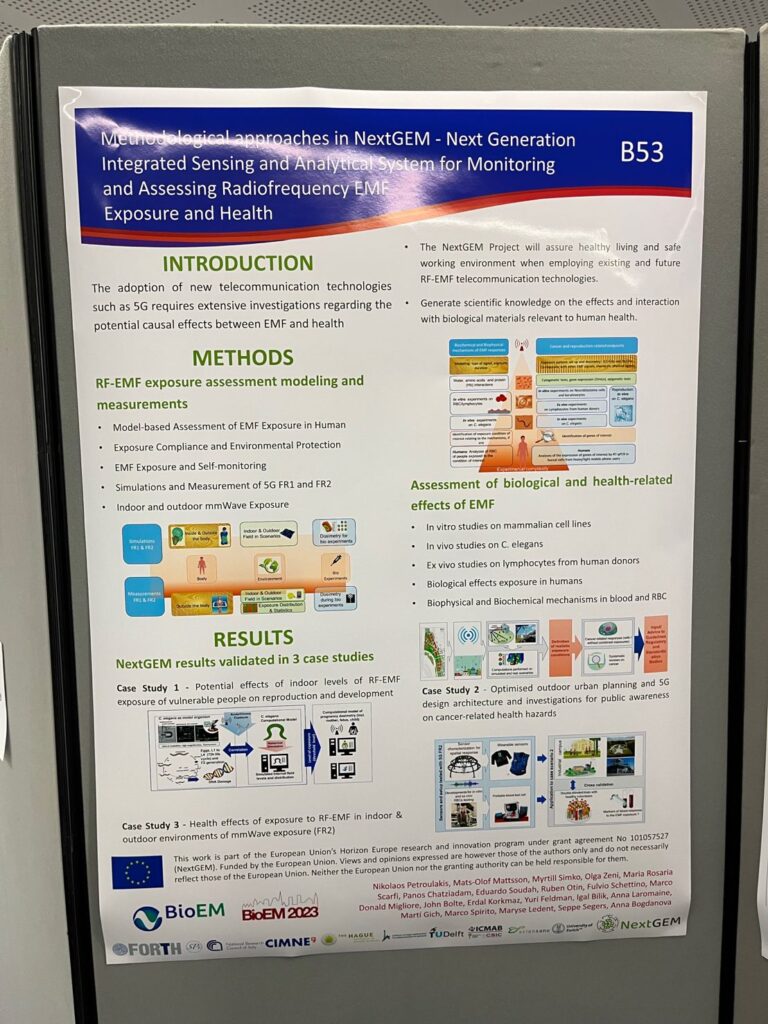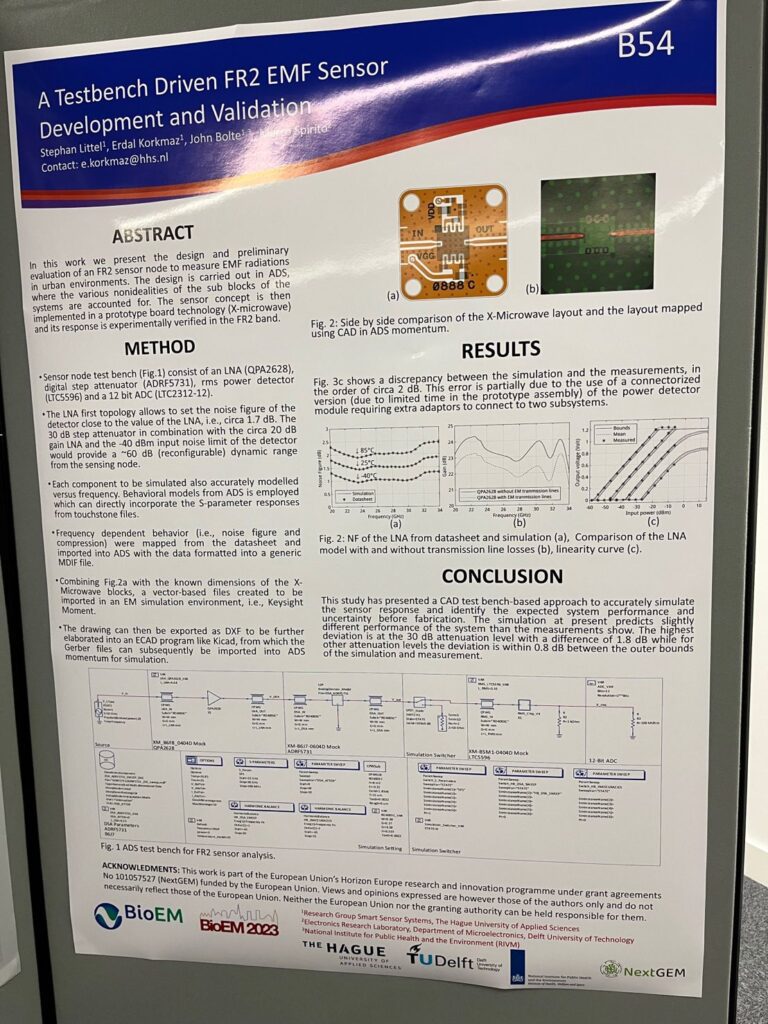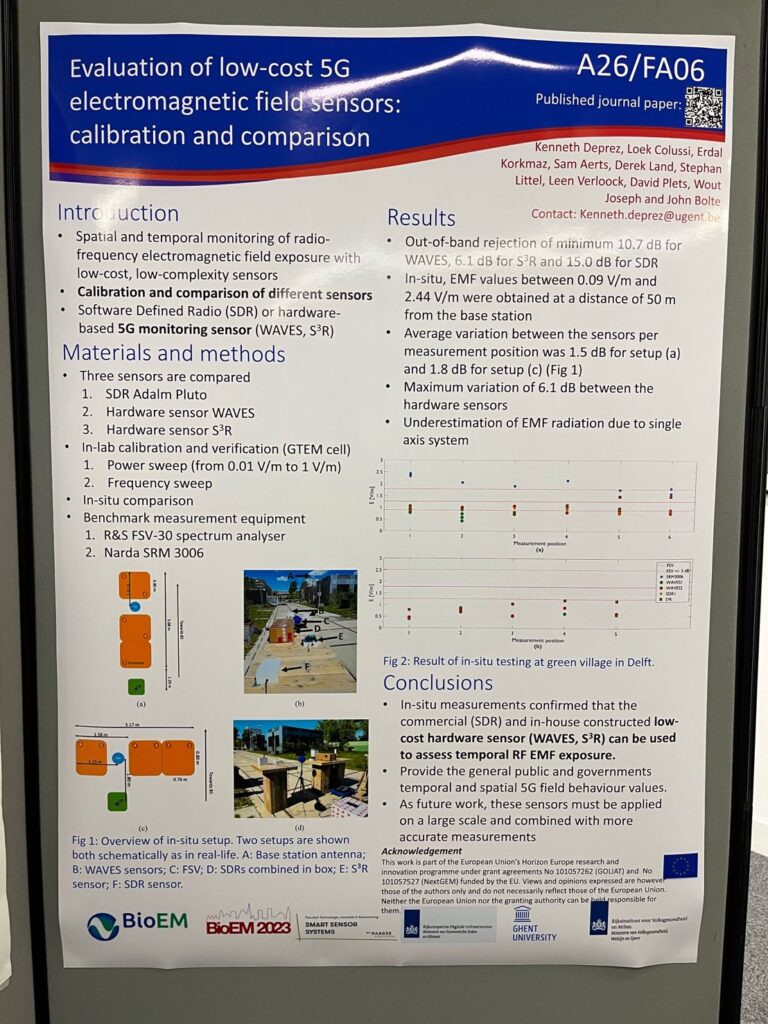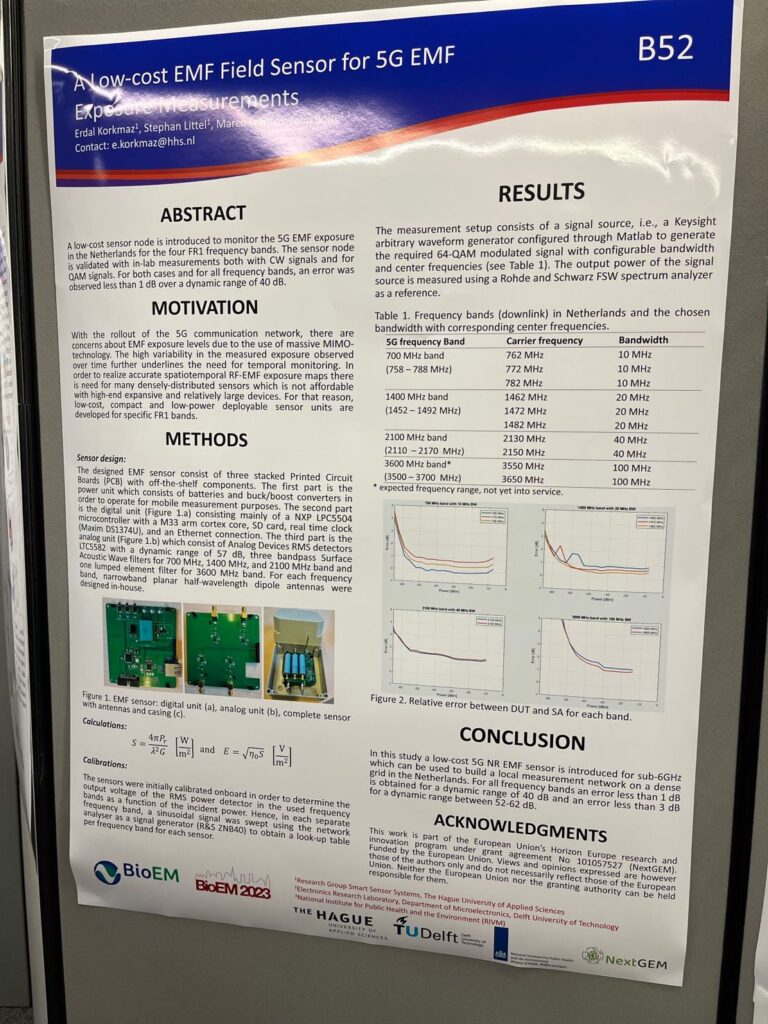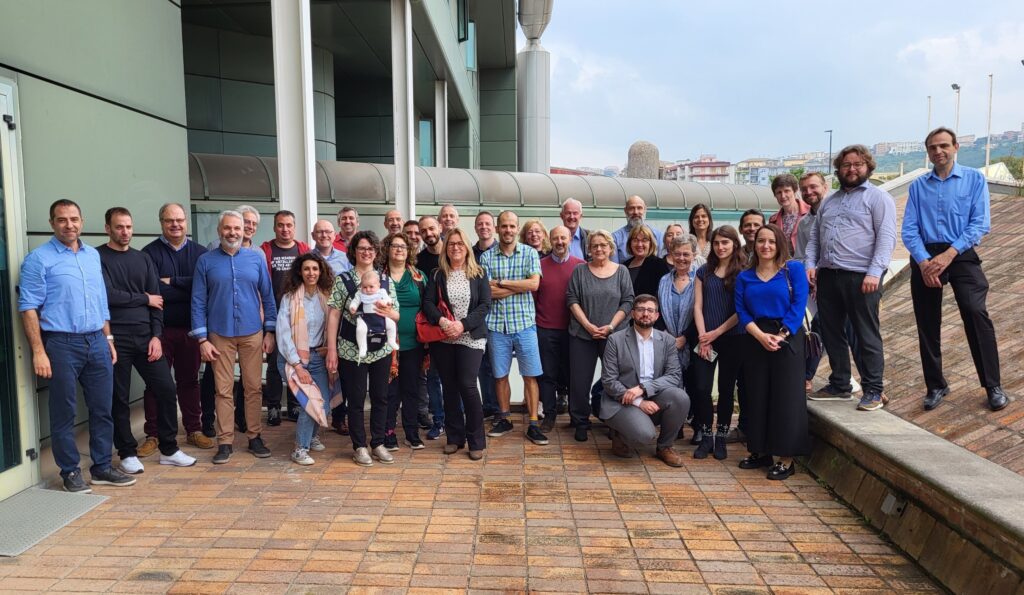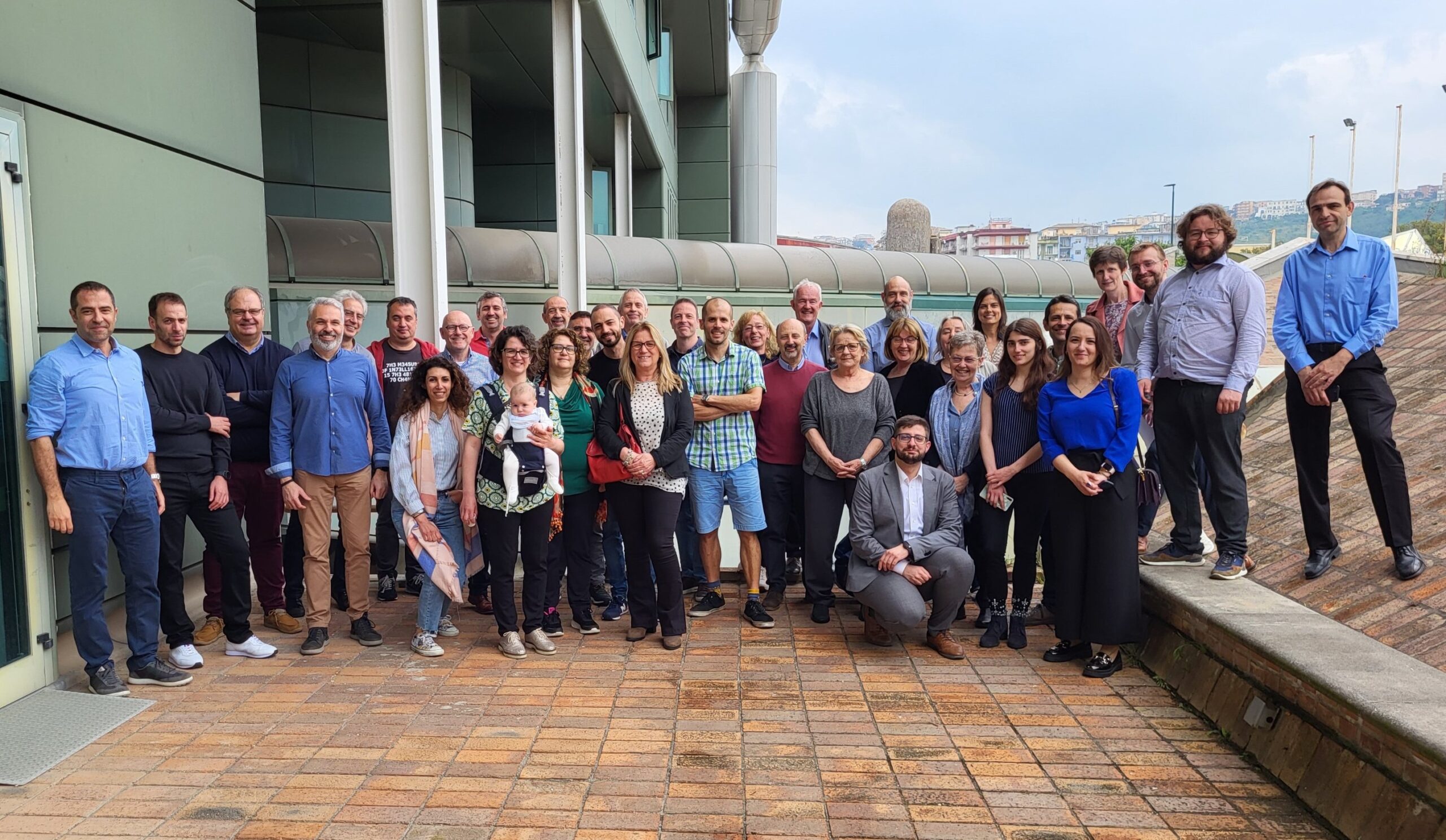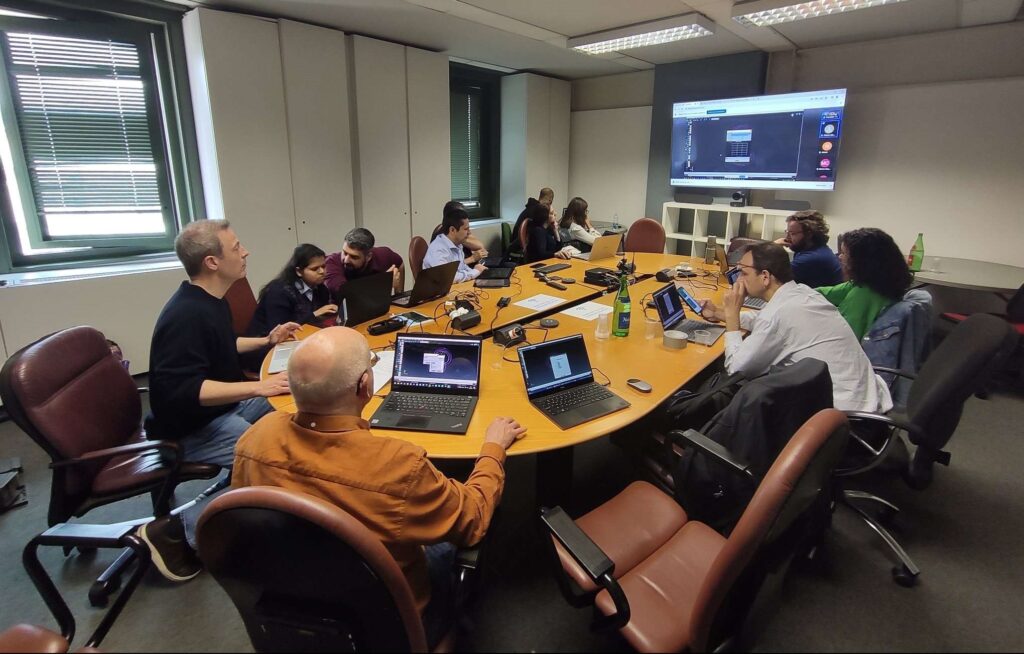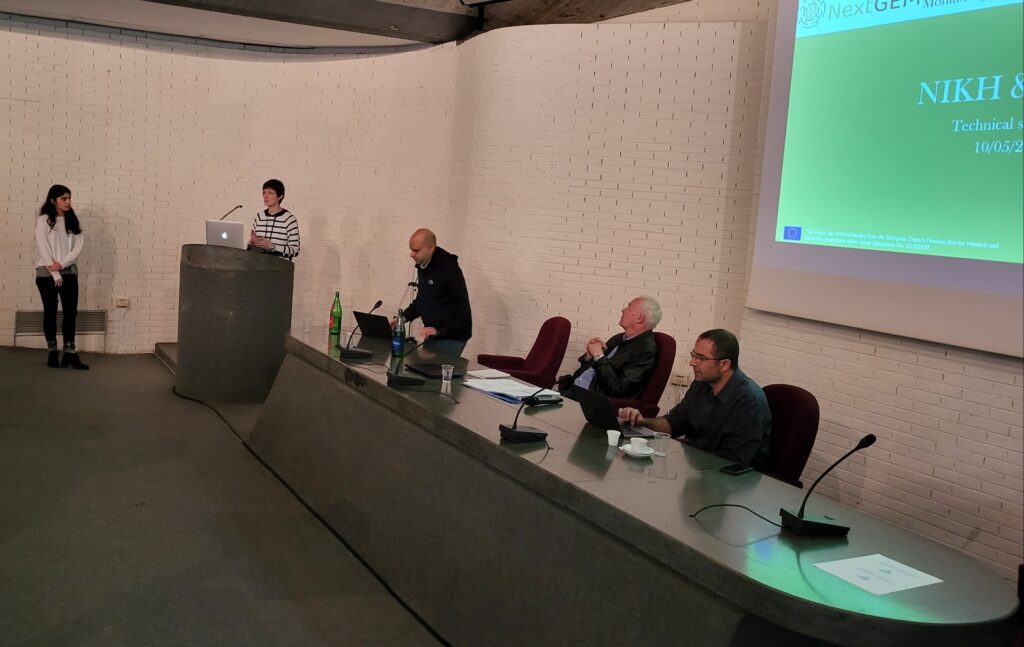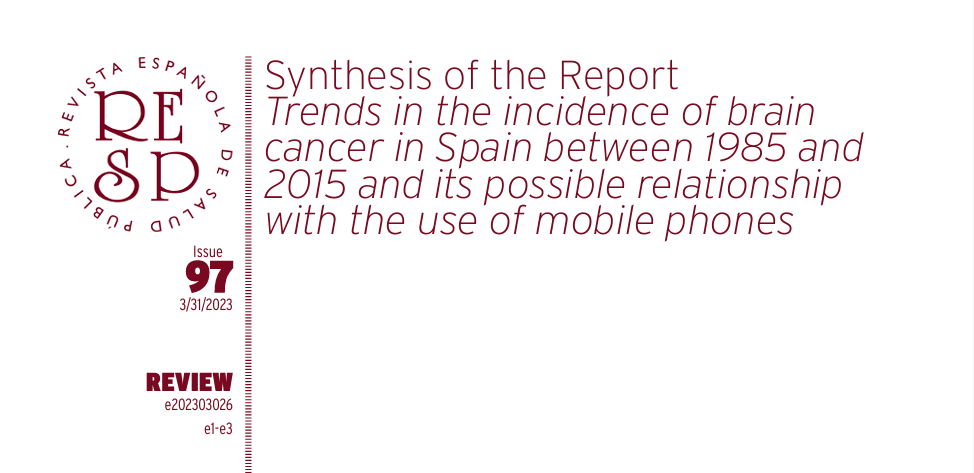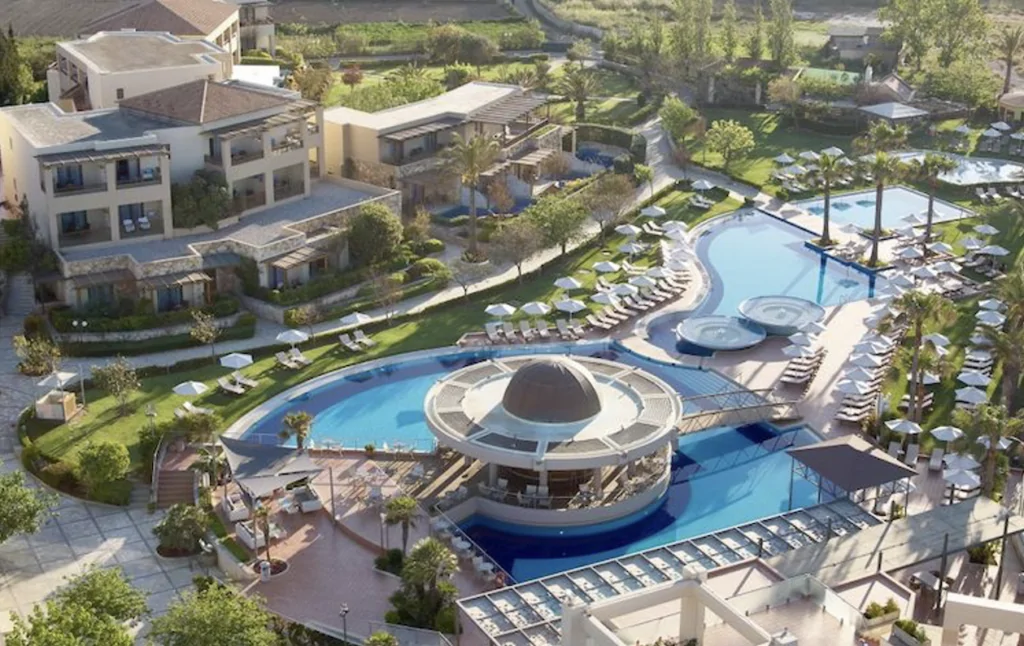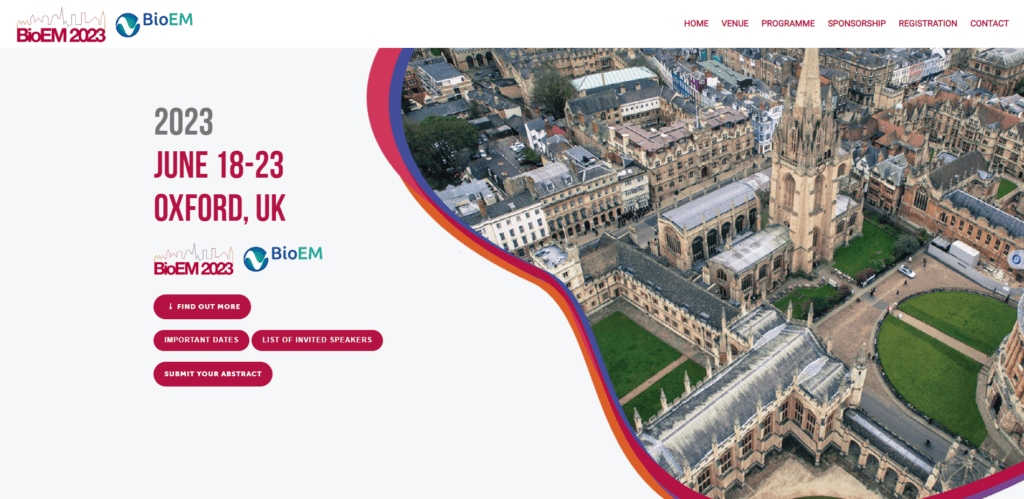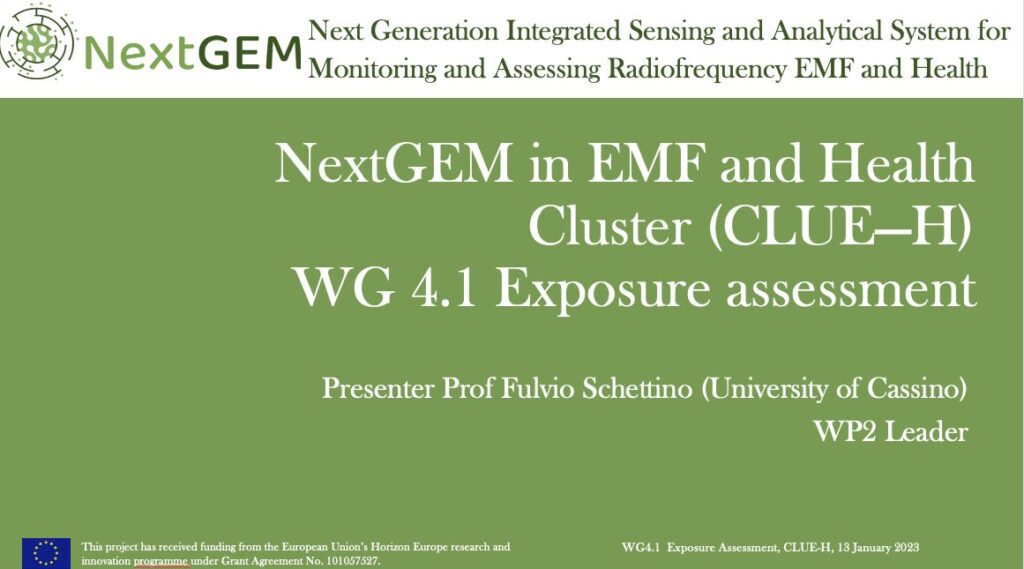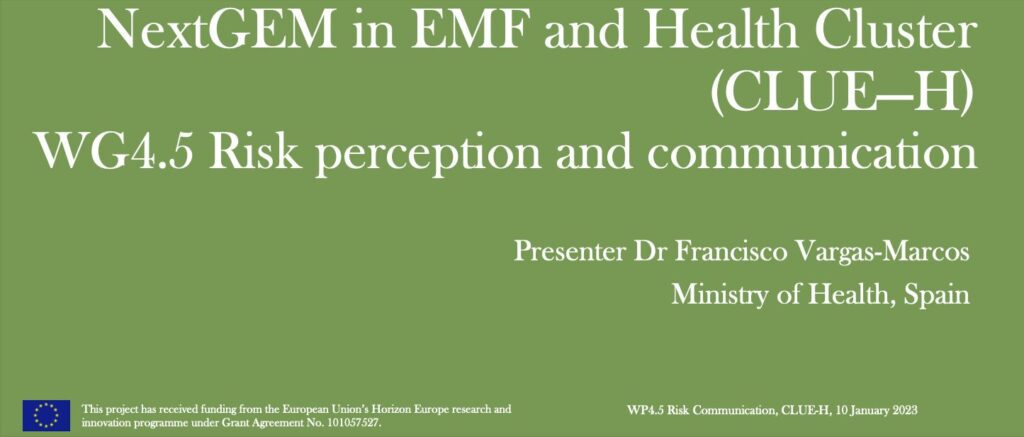FORTH co-hosted NextGEM’s 4th and CLUE-H’s 2nd meetings in October 2023
Fifteen months after the kick-off meeting of NextGEM, FORTH welcomed all project members again to the premises at Heraklion, Crete, Greece on October 10th – 12th, 2023.
During
the first two days, representatives of research institutions, universities,
public and government organizations, small and medium enterprises, and
industrial partners from 10 different countries shared their developments
toward the NextGEM project’s main goal “to ensure EU citizens’ safety when
employing existing and future Electromagnetic field (EMF) based telecommunication
technologies.”
The NextGEM plenary meeting started with a
brief introduction to project management activities followed by the
corresponding presentations from partners in charge of each work package.
Significant progress was made within them, and some are approaching their completion
such as the identification of the stakeholders’ needs and concerns in an ever-changing
telecommunication environment, determining past and present EMF exposure
patterns and characteristics, and designing the architecture of the NextGEM
platform to support the complete lifecycle of generated EMF data inclusively
and openly.
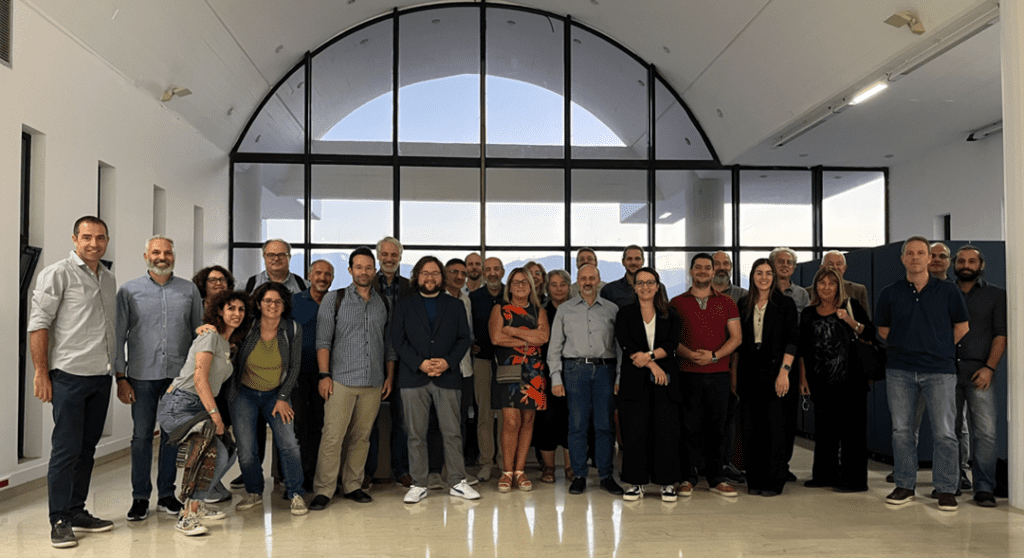
A contribution worth mentioning is the development of ERMES, a computer software aiming to model the EMF distribution on organisms with different body shapes and predict EMF incidence on superficial and deep layers of the body. In parallel, significant advances were made in the design of wearable sensors to monitor the EMF intensity absorbed by the end-users during everyday activities in real-time.
The radiofrequency exposure systems used at the partners’ premises and the first results involving exposure of protein solutions to EMF were presented regarding the biological experiments. Additionally, preliminary measurements were described to set up the experiments with human cells and C. elegans. Experiments with human volunteers are in earlier phases since the necessary ethical approval is still in progress.
The need to homogenize experimental conditions among partners to achieve a better harmonization of results was pointed out, allowing the development of optimal hazard and risk assessments.
Partners working on designing and implementing the NextGEM Innovation & Knowledge Hub (NIKH) shared their progress. NIKH is an online tool devoted to storing the innovations and research outputs produced within the project, including external scientific knowledge obtained from past research or synergies, and offering a network to EMF stakeholders. A brief discussion was held regarding the different case studies’ planned activities and strategies designed to maximize the impact of NEXTGEM through partners’ and stakeholders’ engagement and awareness activities.
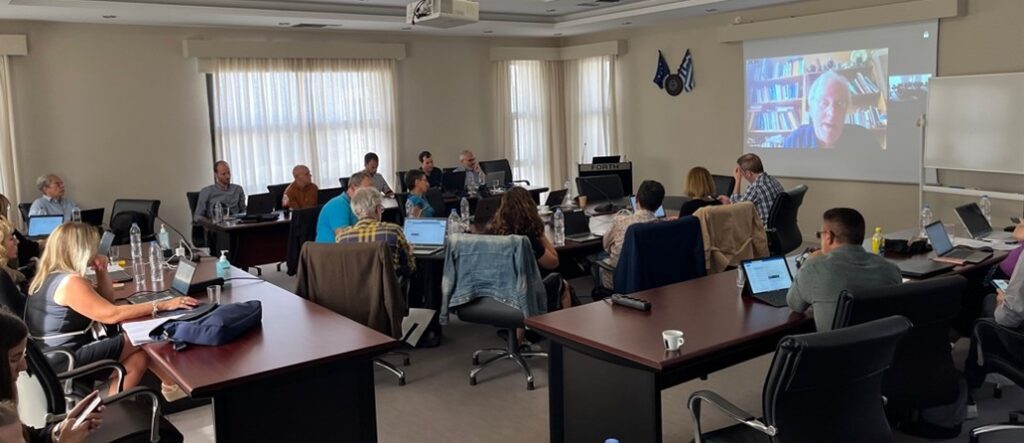
On the third day, the 2nd CLUE-H Annual meeting was held. NextGEM, together with the other Horizon Europe projects SEAWave, ETAIN, and GOLIAT, which were selected for funding under the call HORIZON- HLTH-2021-ENVHLTH-02-01 “Exposure to electromagnetic fields (EMF) and health”, form the European Cluster EMF and Health (CLUE-H). CLUE-H aims to optimize collaborations, establish common strategies, avoid overlaps, and increase the impact of individual projects.
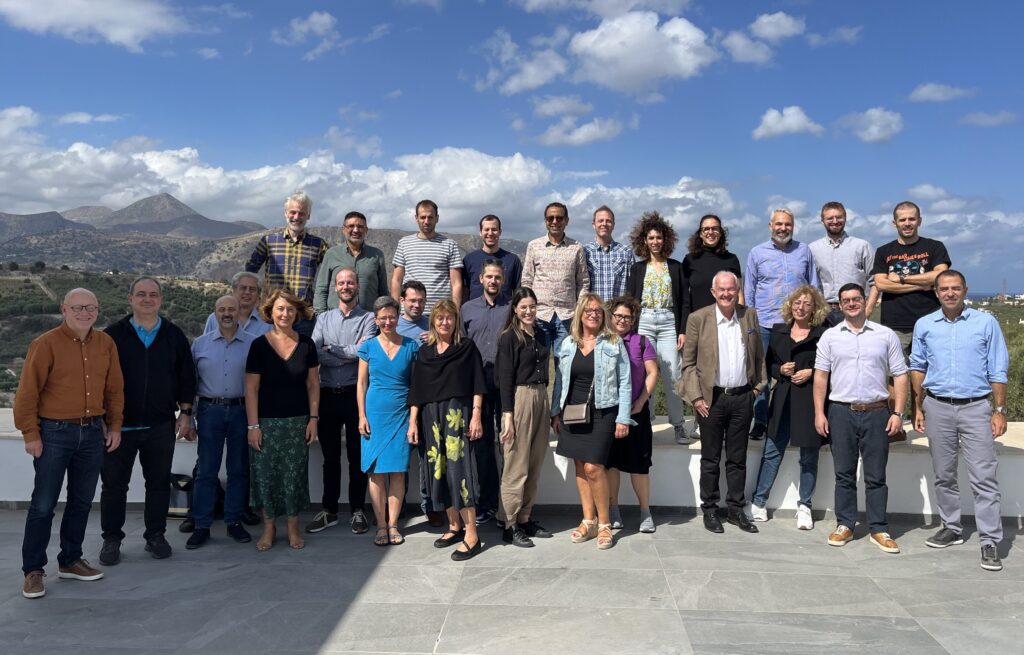
During this meeting, the Coordinators and representatives briefly presented the different projects constituting the Cluster and the activities carried out within the cluster working groups. Some results were also presented by young research scientists involved in the projects, which activated a stimulating discussion. Finally from the 1st of November 2023, the leadership of the CLUE-H is given from SEAWave to NextGEM for the next 14 Months.
FORTH co-hosted NextGEM’s 4th and CLUE-H’s 2nd meetings in October 2023 Read More »

